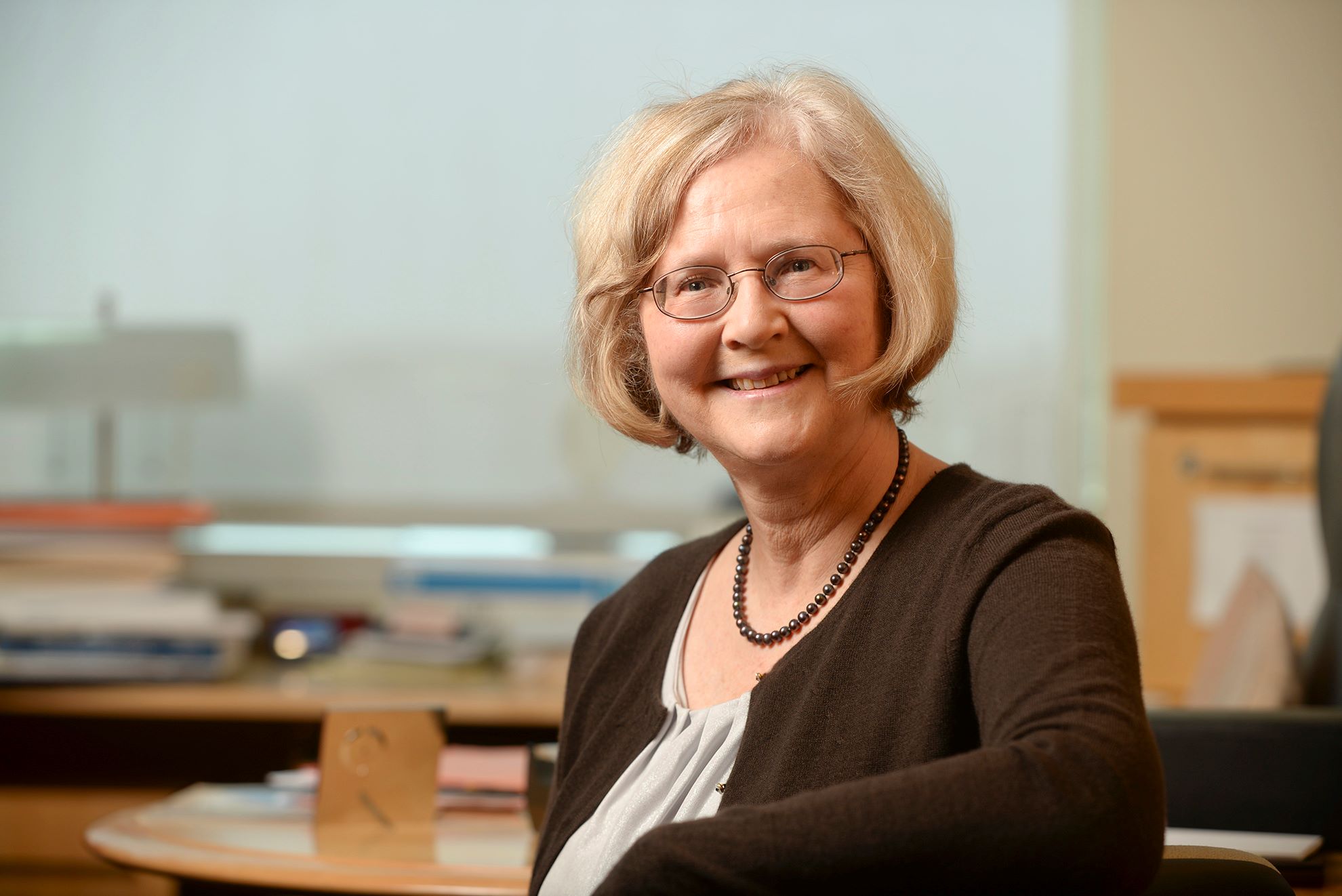
Dr. Elizabeth Blackburn is a name that is synonymous with groundbreaking scientific research and remarkable achievements. As a renowned biologist and Nobel laureate, she has dedicated her life to unraveling the mysteries of human health and longevity. With a career spanning several decades, Dr. Blackburn’s contributions to the field of molecular biology have been nothing short of extraordinary.
In this article, we will explore 13 unbelievable facts about Dr. Elizabeth Blackburn. From her pioneering work on telomeres to her impact on the field of aging research, we will delve into the fascinating discoveries that have earned her international acclaim. Prepare to be amazed as we uncover the remarkable journey of a woman whose dedication and passion have revolutionized our understanding of human biology.
Key Takeaways:
- Dr. Elizabeth Blackburn’s research on telomeres and telomerase has revolutionized our understanding of aging and disease, inspiring global scientific exploration and potential new therapies for age-related conditions.
- As a Nobel Prize winner and influential scientist, Dr. Blackburn continues to inspire the next generation, advocate for science education, and drive advancements in the field of telomere biology with passion and dedication.
Dr. Elizabeth Blackburn won the Nobel Prize in Physiology or Medicine in 2009.
Dr. Elizabeth Blackburn, an Australian-American scientist, made groundbreaking discoveries in the field of telomere biology, earning her the prestigious Nobel Prize in Physiology or Medicine in Her research revolutionized our understanding of how telomeres, the protective caps on the ends of chromosomes, function and their impact on aging and disease.
She co-discovered the enzyme telomerase.
Working alongside her research colleague Dr. Carol W. Greider, Dr. Blackburn identified and characterized the enzyme telomerase in This enzyme plays a crucial role in maintaining the integrity and stability of telomeres by replenishing their length, which is essential for cell longevity and division.
Dr. Blackburn’s research on telomeres has potential implications for age-related diseases.
Dr. Blackburn’s groundbreaking work on telomeres has paved the way for understanding the role of telomere dysfunction in various age-related diseases, including cancer, cardiovascular diseases, and neurological disorders. Her research has opened up new avenues for developing preventive and therapeutic strategies for these conditions.
She served as the President of the Salk Institute for Biological Studies.
Dr. Elizabeth Blackburn served as the President of the renowned Salk Institute for Biological Studies in La Jolla, California, from 2016 to Her leadership and expertise guided the institute in its mission to advance scientific research and make groundbreaking discoveries in various fields of biology.
Dr. Blackburn is a Fellow of the Royal Society of London.
In recognition of her outstanding contributions to the field of science, Dr. Elizabeth Blackburn was elected as a Fellow of the Royal Society of London, one of the world’s most prestigious scientific academies. This esteemed fellowship is a testament to her remarkable achievements and impact on the scientific community.
She has received numerous other awards and honors.
Along with the Nobel Prize, Dr. Blackburn has been recognized with several other awards and honors throughout her career. These include the Albert Lasker Basic Medical Research Award, the Gruber Genetics Prize, and the Australia Prize for Science.
Dr. Elizabeth Blackburn has been a passionate advocate for science education.
Beyond her groundbreaking research, Dr. Blackburn has been actively involved in promoting science education and inspiring the next generation of scientists. She has been a vocal advocate for increased funding for scientific research and has actively participated in science outreach programs.
She is a member of the National Academy of Sciences.
Dr. Blackburn’s exemplary contributions to the field of science led to her induction as a member of the National Academy of Sciences, one of the highest honors in the United States for scientists. This prestigious membership recognizes her exceptional achievements and contributions to scientific knowledge.
Dr. Blackburn holds multiple honorary doctorate degrees.
Throughout her illustrious career, Dr. Blackburn has been awarded honorary doctorate degrees from numerous esteemed universities around the world. These include Harvard University, Yale University, and the University of Oxford, among others.
Her research has global implications.
The groundbreaking research conducted by Dr. Elizabeth Blackburn on telomeres and telomerase has had a profound impact globally. It has inspired scientists and researchers worldwide to further explore the intricate mechanisms of telomere biology and its implications for human health and disease.
She is an accomplished author.
Besides her scientific contributions, Dr. Blackburn is also an accomplished author, having written several influential papers and co-authoring the book “The Telomere Effect: A Revolutionary Approach to Living Younger, Healthier, Longer.” Her work aims to communicate complex scientific concepts to the general public, providing valuable insights into the role of telomeres in aging and wellbeing.
Dr. Elizabeth Blackburn is a sought-after speaker.
Due to her groundbreaking research and contributions to the field of telomere biology, Dr. Blackburn is frequently invited to speak at conferences, seminars, and academic institutions worldwide. Her engaging and informative presentations have inspired countless individuals and motivated further research in the field.
She continues to drive scientific advancements.
Even after receiving numerous accolades and international recognition, Dr. Elizabeth Blackburn remains actively involved in scientific research and continues to drive advancements in the field of telomere biology. Her dedication and passion for unraveling the mysteries of aging and disease make her an ongoing inspiration to the scientific community.
Conclusion
Dr. Elizabeth Blackburn is an extraordinary individual who has made remarkable contributions to the field of science and medicine. Her groundbreaking discovery of telomeres and telomerase has revolutionized our understanding of aging and has opened up new possibilities for the treatment of various diseases.
Through her research and leadership, she has received numerous accolades, including the Nobel Prize in Physiology or Medicine. Dr. Blackburn’s passion for science and dedication to finding answers to some of the most pressing questions in biology serve as an inspiration to researchers and future generations.
The 13 unbelievable facts about Dr. Elizabeth Blackburn highlight her incredible career, her remarkable achievements, and her impact on the scientific community. Her work will continue to shape and influence the field of medicine for years to come.
FAQs
1. Who is Dr. Elizabeth Blackburn?
Dr. Elizabeth Blackburn is a renowned scientist and Nobel laureate. She is known for her groundbreaking research on telomeres and telomerase, which has significantly advanced our understanding of aging, cancer, and various diseases.
2. What are telomeres?
Telomeres are the protective caps at the ends of chromosomes, which help maintain the stability and integrity of our genetic material. They act like the plastic tips on shoelaces, preventing the chromosomes from fraying and sticking together.
3. What is telomerase?
Telomerase is an enzyme that helps to maintain the length of telomeres by adding DNA sequences to the ends of chromosomes. It plays a critical role in cellular aging and can be dysregulated in certain diseases, including cancer.
4. What did Dr. Elizabeth Blackburn discover?
Dr. Blackburn discovered the enzyme telomerase and its role in maintaining the integrity of telomeres. Her findings revolutionized the field of aging and cancer research, paving the way for new possibilities in disease prevention and treatment.
5. What awards has Dr. Elizabeth Blackburn received?
Dr. Elizabeth Blackburn has received numerous awards and honors, including the Nobel Prize in Physiology or Medicine in 2009, along with her colleagues Carol W. Greider and Jack W. Szostak, for their groundbreaking work on telomeres and telomerase.
6. How has Dr. Elizabeth Blackburn contributed to medical research?
Dr. Blackburn’s contributions to medical research are significant. Her work has not only deepened our understanding of aging and cancer but has also paved the way for potential treatments and interventions that can target telomeres and telomerase.
7. Is Dr. Elizabeth Blackburn still actively involved in research?
Yes, Dr. Elizabeth Blackburn continues to be actively involved in research. She is involved in various scientific organizations and serves as a mentor to aspiring scientists, further contributing to the advancement of scientific knowledge.
8. Can telomeres be targeted for anti-aging interventions?
Research is still ongoing, but the study of telomeres and telomerase has opened up new possibilities for anti-aging interventions. While there is no definitive answer yet, the science is advancing, and Dr. Blackburn’s work has provided valuable insights into this exciting area of research.
9. What impact has Dr. Elizabeth Blackburn had on the scientific community?
Dr. Elizabeth Blackburn has had a profound impact on the scientific community. Her research and discoveries have challenged existing paradigms, expanded our knowledge, and inspired countless scientists to pursue groundbreaking research in the field of biology and medicine.
10. What is Dr. Elizabeth Blackburn’s legacy?
Dr. Blackburn’s legacy lies in her influential research on telomeres and telomerase. Her work has not only advanced our understanding of fundamental biological processes but has also laid the foundation for potential breakthroughs in aging, cancer, and other diseases.
Dr. Elizabeth Blackburn's groundbreaking research on telomeres has opened doors to understanding biological aging and its implications for age-related diseases. Her Nobel Prize in Physiology or Medicine, shared with Dr. Shinya Yamanaka, highlights their significant contributions to scientific advancement. Blackburn's work continues to inspire further exploration into the fascinating world of telomeres and immunosenescence, offering hope for unraveling the mysteries of the aging process.
Was this page helpful?
Our commitment to delivering trustworthy and engaging content is at the heart of what we do. Each fact on our site is contributed by real users like you, bringing a wealth of diverse insights and information. To ensure the highest standards of accuracy and reliability, our dedicated editors meticulously review each submission. This process guarantees that the facts we share are not only fascinating but also credible. Trust in our commitment to quality and authenticity as you explore and learn with us.


